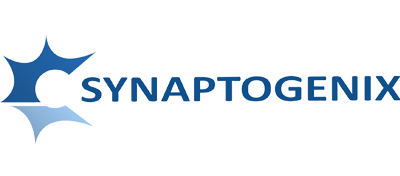Neurotrope’s Bryostatin Improves Cognition in Patients with Advanced Alzheimer’s Disease Based on Further Analysis of Phase 2 Clinical Trial Data
NEW YORK, Jan. 5, 2018 /PRNewswire/ — Neurotrope (NTRP) today announced that a post-hoc analysis of data from its Phase 2 trial in patients with advanced Alzheimer’s disease (AD) found evidence of improvement in cognition in patients receiving the 20μg bryostatin regimen who did not receive memantine, an approved AD treatment, as background therapy. The findings suggest this investigational drug could potentially help treat the progression of AD, rather than only its symptoms. The findings will be presented by Daniel Alkon, MD, President and Chief Scientific Officer of Neurotrope in a keynote presentation at the Sachs’ Neuroscience Innovation Forum on January 7 in San Francisco.
The follow-on analysis also found that patients in the 20μg treatment arm showed a sustained improvement in cognition over baseline compared to the placebo group at week 15 (30 days after last dose at week 11). These data were observed in the study population as a whole.
“These findings are intriguing and warrant further study to confirm whether the observed treatment benefit can be replicated and enhanced,” said Martin R. Farlow, MD, Vice Chairman for Research in the Department of Neurology, Indiana University School of Medicine, Indiana Alzheimer Disease Center, who previously presented the top-line data from Neurotrope’s study at the 2017 Alzheimer’s Association International Conference.
Memantine, an NMDA receptor antagonist, is marketed under the brand names Namenda®, Namenda® XR, and Namzaric® (a combination of memantine and donepezil) for the treatment of dementia in patients with moderate-to-severe AD. It has been shown to delay cognitive decline and help reduce disease symptoms. The interaction between NMDA function and protein kinase C (PKC) has been well studied, and the scientific rationale elucidating the interactions are explored in many peer reviewed publications.
“The discovery that an NMDA inhibitor like memantine may diminish the effect of bryostatin, a PKC epsilon activator is very interesting as it is consistent with the proposed mode of action of bryostatin, and provides an internal control within the trial. This represents one of the most promising new developments in AD research and is welcome news following so many heartbreaking disappointments in the field,” said George Perry, PhD, Semmes Foundation University Chair in Neurobiology, and Dean of the College of Sciences at The University of Texas at San Antonio, an internationally recognized leader in AD research who recently joined Neurotrope’s Board as a Director. “These findings suggest that, for the first time, we may be able to reverse cognitive decline and actually improve cognition in people with moderate-to-severe Alzheimer’s disease. It will be important to further investigate these results with confirmatory studies.”
In this exploratory Phase 2 study in 150 patients with advanced AD, two doses of bryostatin (20μg and 40μg) were compared with controls to assess safety and preliminary efficacy after 12 weeks of treatment. The pre-specified primary endpoint, the Severe Impairment Battery (SIB) used to evaluate cognition in severe dementia, compared each dose of bryostatin with controls at week 13 in two sets of patients: 1) the modified intent-to-treat (mITT) population (consisting of all patients who received the study drug and had at least one efficacy/safety evaluation), and 2) the Completers population (consisting of those patients within the mITT population who completed the 13-week assessment). As previously reported, the 20μg dose was found to be safe and well tolerated, and showed evidence of sustained improvement in cognition compared to controls, while the 40μg dose did not show an improvement in cognition.
The follow-on analysis of the data evaluated SIB scores of patients at 15 weeks, 30 days after all dosing had been completed. For the 20μg group, patients in the mITT population (n=34) showed an overall improvement compared to controls (n=33) of 3.59 (p=0.0503) and in the Completers population (n=34) showed an overall improvement compared to controls (n=33) of 4.09 (p=0.0293). In summary, patients on the 20μg dose showed a persistent SIB improvement 30 days after all dosing had been completed. These p-values and those below are one-tailed.
The post-hoc analysis comparing SIB scores in non-memantine versus memantine patients found the following:
At week 15, non-memantine patients in the mITT Group treated with 20μg (n=14) showed an SIB improvement of 5.88, while the placebo patients (n=11) showed a decline in their SIB scores of -0.05 for an overall treatment Δ of 5.93 from baseline (p=0.0576).
At week 15, non-memantine patients in the Completers Group treated with 20μg (n=14) showed an SIB improvement of 6.24, while the placebo patients (n=11) showed a decline in their SIB scores of -0.12 for an overall treatment Δ of 6.36 from baseline (p=0.0488).
Patients taking memantine as background therapy in the 20μg (n=20) and control (n=22) groups showed no improvement in SIB scores.
Neurotrope is planning a confirmatory study in advanced AD patients not taking memantine as background therapy to evaluate whether the improvements in SIB scores in those patients can be replicated. The company is in discussions with a leading academic institution to design and conduct the trial, which is expected to begin in the first half of 2018.
“Neurotrope’s next clinical trial will focus on the 20μg dose, which showed evidence of sustained cognitive improvement in advanced Alzheimer’s disease patients,” said Dr. Alkon. “It will be designed to confirm, with increased power, the increases in SIB scores observed among memantine-free patients in the recently completed Phase 2 trial. The company has the financial resources required to complete the planned study.”
About Bryostatin
Bryostatin-1 is a protein kinase C epsilon (PKCɛ) activator that works through synaptic growth factors, as well as anti-amyloid and anti-tangle signaling pathways in the brain. It has been shown in preclinical efficacy studies to induce the growth of mature synapses in the brain and prevent neuronal death. Thus, Bryostatin-1 introduces a fundamentally different biological mechanism of action with the potential for longer lasting effects than the other currently available therapies. Bryostatin-1 is the first PKCε modulator to be tested in a Phase 2 clinical study for patients suffering from advanced AD — a difficult to treat population.
The rationale for researching this novel mechanism in AD results from in vitro and in vivo models of AD demonstrating that modulation of PKCε by Bryostatin-1 enhances synaptogenesis and prevents neuronal death. As synaptic loss is tightly correlated with cognitive impairment in AD, this attribute of the molecule made bryostatin an intriguing candidate for additional investigation in dementia. Furthermore, preclinical studies also demonstrated bryostatin reduces toxic Aß levels, prevents plaque formation, inhibits tau phosphorylation, and enhances cognition. Thus, the multimodal effects of this first PKCε modulator offer a potential new mechanism to study in AD with the ultimate goal to slow or prevent the progression of disease.
About Neurotrope
Neurotrope is at the forefront of developing a new approach to combating AD and other neurodegenerative diseases. The Company’s world-class science offers the potential to realize a paradigm shift to overcome one of today’s most challenging clinical problems — finding a way to slow or even prevent the progression of AD.
In addition to the Company’s Phase 2 trial of bryostatin-1 in advanced AD, Neurotrope has also conducted preclinical studies of bryostatin as a potential treatment for Fragile X Syndrome, Niemann-Pick Type C disease and Rett Syndrome—three rare genetic diseases for which only symptomatic treatments are currently available. The FDA has granted Orphan Drug Designation to Neurotrope for Bryostatin-1 as a treatment for Fragile X Syndrome. Bryostatin-1 has already undergone testing in more than 1,500 people in cancer studies, thus creating a large safety data base that will further inform clinical trial designs in AD.
Forward-Looking Statements
Any statements contained in this press release that do not describe historical facts may constitute forward-looking statements. These forward-looking statements include statements regarding the Phase 2 study and further studies, and continued development of use of Bryostatin-1 for Alzheimer’s dementia and other cognitive diseases. Such forward-looking statements are subject to risks and uncertainties and other influences, many of which the Company has no control over. These statements are subject to the risk that further analyses of the Phase 2 data may lead to different interpretations of the data than the analyses conducted to date and/or may identify important implications of the Phase 2 data that are not reflected in these statements. Clinical trial data are subject to differing interpretations, and regulatory agencies, medical and scientific experts and others may not share the Company’s views of the Phase 2 data. There can be no assurance that the clinical program for Bryostatin-1 will be successful in demonstrating safety and/or efficacy that we will not encounter problems or delays in clinical development, or that Bryostatin-1 will ever receive regulatory approval or be successfully commercialized. Actual results and the timing of certain events and circumstances may differ materially from those described by the forward-looking statements as a result of these risks and uncertainties. Additional factors that may influence or cause actual results to differ materially from expected or desired results may include, without limitation, the Company’s inability to obtain adequate financing, the significant length of time associated with drug development and related insufficient cash flows and resulting illiquidity, the Company’s patent portfolio, the Company’s inability to expand the Company’s business, significant government regulation of pharmaceuticals and the healthcare industry, lack of product diversification, availability of the Company’s raw materials, existing or increased competition, stock volatility and illiquidity, and the Company’s failure to implement the Company’s business plans or strategies. These and other factors are identified and described in more detail in the Company’s filings with the SEC, including the Company’s Annual Report on Form 10-K for the year ended December 31, 2016 and on Form 10-Q for the quarter ending September 30, 2017. The Company does not undertake to update these forward-looking statements.
Please visit www.neurotropebioscience.com for further information.
Contact information:
Investors
Jeffrey Benison, Director of Corporate Communications
Neurotrope Bioscience, Inc.
(m) 516.286.6099
(e) jbenison@neurotropebioscience.com
Media
James Heins
Senior Vice President
ICR Healthcare
(m) 203.856.2121
(e) james.heins@icrinc.com
Related Links








